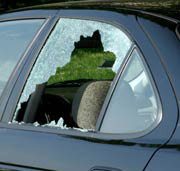
Mangalore, March 29: Around Rs. 3.5 lakhs were stolen from a parked car in Valencia area of the city on Wednesday.
The cash belonged to Kamaruddin of Medicity Medicals. He had parked his car near the SBI Bank in Valencia, where he dropped in for some work. By the time he returned, he found the cash he had kept in a cover on the seat of the car missing.
“It happened around 12 noon. I had gone out for hardly 10 minutes and the theft had taken place”, Mr. Kamaruddin told Coastaldigest.com.
Mr. Kamaruddin said that he doesn't rule out the possibility of the theft being carried out by someone who knew him or people close to him. He added though that he felt as though he was being followed by someone while on his way to the SBI. “There was a man of dark complexion who I felt was following me from State Bank”, he said.
The glass of the back door of the car was damaged to get access to the cash by the thief.
Pandeshwar police are investigating the case.





Comments
Add new comment